#Leonard Cohen - Famous Blue Raincoat
Explore tagged Tumblr posts
Text
Famous blue raincoat
A letter from Sirius to Regulus
"It's four in the morning, the end of December
I'm writing you now just to see if you're better
London is cold, but I like where I'm living
There's music on Denmark Street all through the evening
I hear that you're building your little house deep in the desert
You're living for nothing now, I hope you're keeping some kind of record
Yes, and James came by with a lock of your hair
He said that you gave it to him
That night that you planned to go clear
Did you ever go clear?
Ah, the last time we saw you you looked so much older
Your famous black raincoat was torn at the shoulder
You'd been to the station to meet every train, and
You came home without Lili Marlene (muggle reference)
And you treated my best friend to a flake of your plans
And when he came back she was nobody's soldier
Well I see you there with the rose in your teeth
One more thin gypsy thief
Well, I see James' awake
He sends his regards
And what can I tell you my brother, my killer
What can I possibly say?
I guess that I miss you, I guess I forgive you
I'm glad you stood in my way
If you ever come by here, for James or for me
Well, your enemy is sleeping, and his best friend is free
Yes, and thanks, for the trouble you took from his eyes
I thought it was there for good so I never tried
And James came by with a lock of your hair
He said that you gave it to him
That night that you planned to go clear
Sincerely, S Lupin"
For context, Regulus told James —who was sick with worry (and hating himself for it) at the thought of his (ex)lover in danger, he had a plan to get out and a safe place for the both of them if he wanted it (in which they would plan Voldemort's defeat) so when James came back he was set on helping Regulus with his mission as soon as he got the okay (the" house in the desert" , the "trouble in James' eyes" and "going clear"); and "I'm glad you stood in my way" would be Sirius' guilt at wondering if he could only leave because someone would be there to take his place as heir ("You stood in my way of me becoming their puppet").
#marauders#dead gay wizards#regulus black#sirius black#james potter#jegulus#black brothers#black brother angst#song: famous blue raincoat by Leonard cohen
24 notes
·
View notes
Text
“And what can I tell you
my brother, my killer?
What can I possibly say?
I guess that I miss you,
I guess I forgive you.”

The Umbrella Academy /// Famous Blue Raincoat - Leonard Cohen
#the umbrella academy#tua#tua s4#five hargreeves#diego hargreeves#famous blue raincoat#leonard cohen
21 notes
·
View notes
Text

the hold this lyric has on me
13 notes
·
View notes
Text
"Yes, and thanks, for the trouble you took from her eyes I thought it was there for good so I never tried"
is hands down one of the most beautiful lines in modern music/poetry. It gives me full body chills every time I hear him sing it. I honestly don't know why.
9 notes
·
View notes
Text
when Leonard Cohen sang "I guess that I miss you, I guess I forgive you, I'm glad you stood in my way"

13 notes
·
View notes
Text
"I fancy listening to Leonard Cohen today", says woman who does not realise she is doomed by the narrative.
29 notes
·
View notes
Text









#leonard cohen#famous blue raincoat#songs of love and hate#moodboard#send me a song and i'll make a moodboard#♡
47 notes
·
View notes
Text
youtube
Inspired by a comment in a Rick Beato video on albums with great sound, this album was referenced in a comment (not the video).
I remembered Jennifer Warnes sang the famous Time of My Life with Bill Medley, so this album from her may be good...
And four songs on, the sound is quite transparent, clear and quite a treat - when you don't have to keep up with all the notes (as in complex technical metal bands/albums)... [Update: Heard the entire album eventually.]
Full album Playlist: https://www.youtube.com/watch?v=0xsJXDwIL2k&list=PL_IzBVwc567ZMQNUOSJTpM-kwz3vStH90&index=1
This album, Famous Blue Raincoat (1987) is a Leonard Cohen tribute album... Her sixth studio album.
Great to discover non-famous/popular music from famous/popular musicians.
(Hope you get the meaning behind these clumsily put words... Like consciously focusing on Europe's songs Danger on the Track and other songs in the album over the massive hit The Final Countdown.)
Do enjoy!
---
The album credits (Wikipedia) include some very very big names...
Jennifer Warnes – vocals, harmony vocals
Leonard Cohen – vocals (on "Joan of Arc"), sketches
Roscoe Beck – bass, fretless bass, synthesizer, guitar
Larry Brown – tambourine, shakers
William D. "Smitty" Smith – synthesizer, Hammond organ
Jorge Calderón – bass
Lenny Castro – percussion
Gary Chang – synthesizer, programming, synthesizer arrangements
Vinnie Colaiuta – drums
Larry Corbett – cello
Russell Ferrante – piano, synthesizer
Richard Feves – bass
Robben Ford – guitar
Van Dyke Parks – synthesizer, accordion, arranger
Michael Landau – guitar
David Lindley – lap steel guitar
Fred Tackett – guitar
Stevie Ray Vaughan – guitar
Steve Forman – percussion
Bill Ginn – synthesizer, piano, percussion, arranger, conductor
Kal David – background vocals
George Ball – background vocals
Terry Evans – background vocals
Willie Green, Jr. – background vocals
William "Bill" Greene – background vocals
Bobby King – background vocals
Arnold McCuller – background vocals
Joseph Powell – background vocals
David Lasley – background vocals
Tim Stone – background vocals
Greg Prestopino – background vocals
Sharon Robinson – background vocals
Reverend Dave Boruff – saxophone
Paul Ostermayer – tenor saxophone
Novi Novog – viola
Suzie Katayama – cello
Sid Page – violin
Barbara Porter – violin
---
#Famous Blue Raincoat#Rock#Sound Engineering#Jennifer Warnes#Leonard Cohen#Roscoe Beck#Larry Brown#William D. “Smitty” Smith#Jorge Calderón#Lenny Castro#Gary Chang#Vinnie Colaiuta#Larry Corbett#Russell Ferrante#Richard Feves#Robben Ford#Van Dyke Parks#Michael Landau#David Lindley#Fred Tackett#Stevie Ray Vaughan#Steve Forman#Bill Ginn#Kal David#George Ball#Terry Evans#Willie Green Jr.#William “Bill” Greene#Bobby King#Arnold McCuller
4 notes
·
View notes
Text

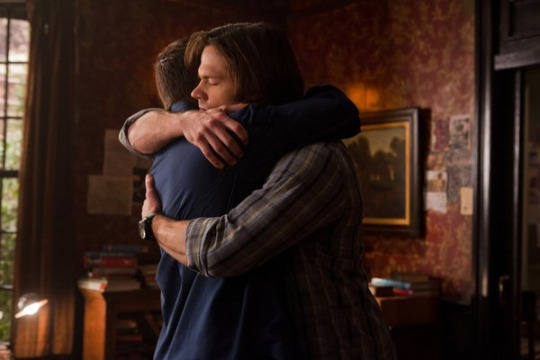

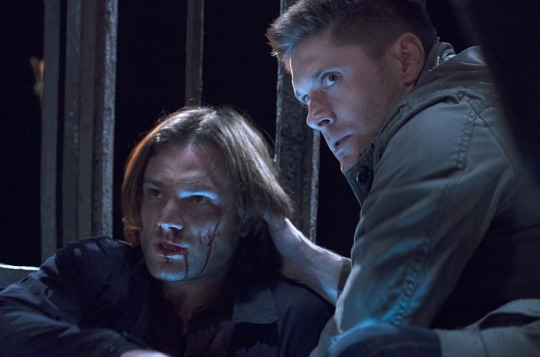
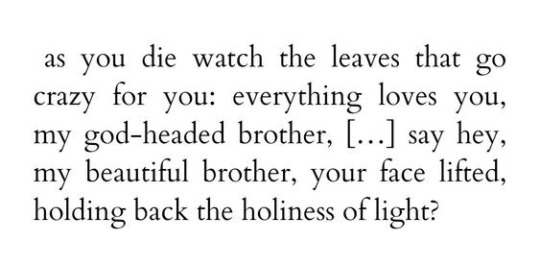
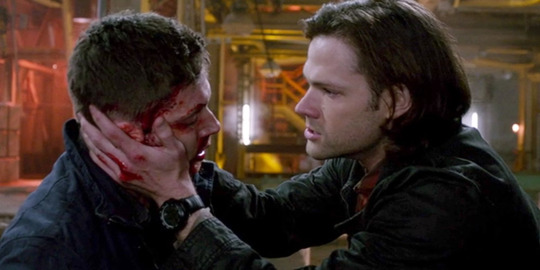

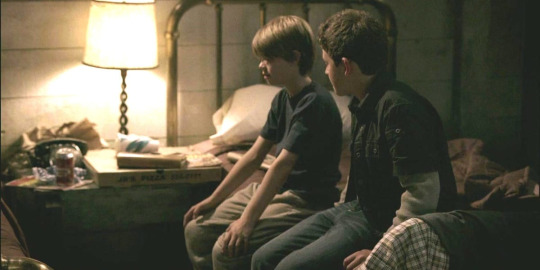



Sophokles (tr. Anne Carson) Antigonick / Supernatural; Like a Virgin dir. Philip Sgriccia / Andrew Kozma Song of the Insensible / Supernatural; The Devil in the Details dir. Thomas J. Wright / unknown / Supernatural; Do You Believe in Miracles dir. Thomas J. Wright / Ann Brashares My Name Is Memory / Supernatural / Leonard Cohen Famous Blue Raincoat / Supernatural; Pilot dir. David Nutter / Natalie Diaz A Brother Named Gethsemane; When My Brother Was an Aztec (via @morepeachyogurt)
#been rewatching spn and figured i would terrorize you all with sam and dean angst#on family#on brothers#on brotherhood#supernatural#dean winchester#sam winchester#sophokles#anne carson#antigonick#andrew kozma#song of the insensible#ann brashares#my name is memory#leonard cohen#famous blue raincoat#natalie diaz#when my brother was an aztec#philip sgriccia#thomas j wright#jensen ackles#jared padalecki#jared padamoose#tw blood#blood tw#spn#spn dean#spn sam#sam and dean#winchester brothers
68 notes
·
View notes
Text

Leonard Cohen
(September 21, 1934 - November 7, 2016)
46 notes
·
View notes
Text
I'm going to write "Famous blue raincoat" by Leonard Cohen as a letter from Sirius to Regulus after Regulus was reported missing. (With James as Jane but without the love triangle, it'll be platonic but still codependent prongsfoot)
#marauders#dead gay wizards#regulus black#sirius black#james potter#jegulus#black brother angst#black brothers#song: famous blue raincoat by leonard cohen
23 notes
·
View notes
Text
youtube
what can I tell you my brother my killer what can I possibly say i guess that I miss you i guess i forgive you i'm glad that you stood in my way and thanks for the trouble you took from her eyes i thought it was there for good so i never tried
5 notes
·
View notes
Text
can't decide if it would only be funny in theory or in practice to have Bummer Karaoke Night where we only sing songs that would kill the mood stone cold dead at any sane karaoke joint
4 notes
·
View notes
Text
there is not enough leonard cohen appreciation here smh😿
#leonard cohen#songs of leonard cohen#hallelujah#suzanne#famous blue raincoat#winter lady#the future#so long marianne#hey thats no way to say goodbye#im your man#avalanche#dress rehearsal rag#you want it darker#dance me to the end of love#lady of the harbor
5 notes
·
View notes
Text
youtube
Famous Blue Raincoat
Leonard Cohen
*
And what can I tell you my brother, my killer?
What can I possibly say?
I guess that I miss you. I guess I forgive you
I'm glad you stood in my way
13 notes
·
View notes
Text
14 notes
·
View notes